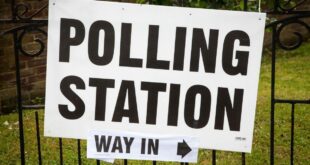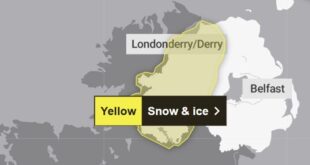LONDON (AP) — Railroad workers across England walked off the job Tuesday, disrupting trains throughout the U.K. and starting what is expected to be a month of strikes by public service workers demanding higher pay as soaring inflation erodes living standards.
The Rail, Maritime and Transport union has called two 48-hour strikes this week, canceling most services on Tuesday and Wednesday then again on Friday and Saturday. The strikes come after unions rejected the latest offer on pay and working conditions from Network Rail, which runs the rail network, and 14 train operating companies.
Nurses, border guards and ambulance drivers are among the other workers set to strike this month, forcing the government to discuss mobilizing the army to staff vital public services this winter. The strikes also threaten to curtail business for shops, hotels and restaurants that rely on the Christmas season to boost revenue.
Labor unrest has increased in recent months after rising food and energy prices pushed inflation to a 41-year high of 11.1% and employer pay offers failed to keep pace with the cost of living. Some 417,000 working days were lost to strikes in October, the highest number in a decade.
RMT leader Mick Lynch insisted his members have the support of the public and blamed the government for the impasse.
Read More: Britain’s New Prime Minister Is Already Facing His First Crisis
“I have no intention of spoiling people’s Christmas,’’ he told British broadcaster ITV. “The government is contributing to that spoiling of the people’s Christmas because they’ve brought these strikes on by stopping the companies from making suitable proposals.”
In addition to seeking higher pay, the RMT is opposed to proposals it says will lead to job losses, force employees to work more nights and weekends and compromise the safety of the network.
Train companies and the government say they need to change the way the rail network operates to control costs after the pandemic reduced passenger traffic.
Transport Secretary Mark Harper rejected reports that he blocked an offer that would have increased pay for rail workers by 10% over two years.
“I haven’t blocked any offers,” he told the BBC. “Quite the reverse … I made sure there was an improved offer on the table. It’s a very fair and reasonable offer.”
More Must-Reads From TIME
Source link



